GENERAL SITUATION IN MEXICO

Weekly Review I July 23, 2025





Weekly Review I July 23, 2025







• On July 14, 2025, the US imposed a 17% tariff on Mexican fresh tomatoes after unilaterally withdrawing from the 2019 Tomato Suspension Agreement, alleging dumping practices by Mexican exporters.
• The move reignites a long-standing trade conflict. Mexico is the top foreign supplier of tomatoes to the US, accounting for 70% of national consumption, with $3.1 billion USD in annual exports affected.
• Just two days prior, on July 12, President Trump announced a broader threat: a 30% general tariff on all Mexican imports starting August 1, citing the Mexican government’s failure to control fentanyl trafficking and irregular migration.
• Combined, these measures threaten the stability of over $850 billion USD in bilateral trade and may undermine key pillars of the USMCA.
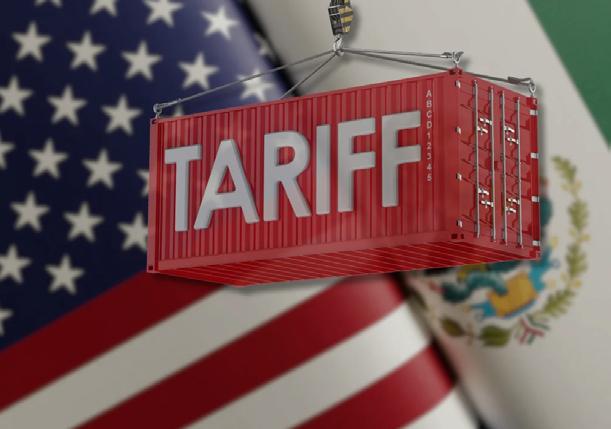
AGRICULTURE UNDER PRESSURE:
The tomato tariff has already caused supply chain disruptions in Sinaloa and Baja California. Industry groups forecast price increases of 6–10% in the US retail market and reduced profitability for Mexican growers.
POTENTIAL RIPPLE EFFECTS:
The tariff threat extends beyond tomatoes — avocados, peppers, berries, cucumbers, beer, and tequila are vulnerable due to their visibility and value in bilateral trade.
EXPORTERS BRACE FOR UNCERTAINTY:
Automotive suppliers, electronics assemblers, and food processors operating in Mexico face higher landed costs, possible shipment rerouting, and contract renegotiations with US buyers.
DIPLOMATIC ESCALATION:
The Mexican government condemned both actions and requested emergency consultations under the USMCA framework. Officials have warned of potential countermeasures if the August tariffs are enacted.
US–MEXICO TRUST IN JEOPARDY:
The threat of a sweeping 30% tariff — outside of USMCA protocols — could set a damaging precedent and undermine investor confidence in regional integration.
AGRICULTURE UNDER PRESSURE:
• The tomato tariff has already caused supply chain disruptions in Sinaloa and Baja California. Industry groups forecast price increases of 6–10% in the US retail market and reduced profitability for Mexican growers.
POTENTIAL RIPPLE EFFECTS:
• The tariff threat extends beyond tomatoes — avocados, peppers, berries, cucumbers, beer, and tequila are vulnerable due to their visibility and value in bilateral trade.
EXPORTERS BRACE FOR UNCERTAINTY:
• Automotive suppliers, electronics assemblers, and food processors operating in Mexico face higher landed costs, possible shipment rerouting, and contract renegotiations with US buyers.
DIPLOMATIC ESCALATION:
• The Mexican government condemned both actions and requested emergency consultations under the USMCA framework. Officials have warned of potential countermeasures if the August tariffs are enacted.
US–MEXICO TRUST IN JEOPARDY:
• The threat of a sweeping 30% tariff — outside of USMCA protocols — could set a damaging precedent and undermine investor confidence in regional integration.
ENVIRONMENTAL
• POINT OF AGREEMENT ON THE REDUCTION OF PLASTIC USE
Presented by: Sen. Alberto Anaya Gutiérrez (National List - PT)
Presented by: Urges various agencies to strengthen public policies to reduce plastic use, especially single-use plastics, through regulation, environmental education, innovation incentives, and recycling.
Status: 2025-07-16 – Published in the Parliamentary Gazette
• INITIATIVE WITH DRAFT DECREE TO AMEND AND ADD VARIOUS PROVISIONS TO THE FOOD AID LAW FOR WORKERS
Presented by: Dip. Carlos Alberto Guevara Garza (NL - PVEM)
Presented by: Requires employers with more than 50 workers to provide food aid programs. Micro and small businesses may participate voluntarily through public-private co-financing. .
Status: 2025-07-16 – Published in the Parliamentary Gazette

• INITIATIVE WITH DRAFT DECREE TO ADD A SECTION TO ARTICLE 73 OF THE CONSTITUTION
Presented by: Dip. Irais Virginia Reyes De La Torre (Plurinominal - MC)
Presented by: Empowers the Congress of the Union to enact laws on artificial intelligence, establishing the foundations for its development, use, and regulation, aiming to guarantee human rights, legal certainty, equity, and social
Status: 2025-07-16 – Published in the Parliamentary Gazette
• INITIATIVE WITH DRAFT DECREE TO AMEND SECTION A) OF FRACTION XXI OF ARTICLE 73 OF THE CONSTITUTION REGARDING EXTORSION
Presented by: Federal Executive
Presented by: Empowers the Congress of the Union to issue general laws that establish minimum criminal types and sanctions related to extortion.
Status: 2025-07-10 – Published in the Parliamentary Gazette


Turnkey Projects is developing Zona Alfa, a 340-hectare industrial park in Tijuana positioned as one of Mexico’s most innovative and strategic developments. Designed as a comprehensive ecosystem, it integrates logistics, sustainability, housing, talent development, and energy solutions to attract foreign investment—particularly from Asia— amid global nearshoring trends. Just 10 minutes from the U.S. border, it leverages Mexico’s USMCA advantages and addresses key challenges like energy infrastructure by incorporating solar parks. The project includes a training center to develop world-class talent and responds to specific industry needs. With active projects in Baja California and plans in Jalisco and Sonora, Turnkey offers tailored, turnkey solutions with legal, operational, and technical support—redefining industrial development in Mexico through a long-term, community-focused approach.
SOURCE: MEXICO INDUSTRY


Construction of the new Desert Park industrial park in Hermosillo, Sonora will begin in the coming months, according to Arturo Fernández, president of Sonora Global. Spanning over 646,000 square meters across three lots, the park is designed to host technology and automotive companies and is expected to drive investment and job creation in the region. The project received formal approval on July 3, 2025, with a threemonth timeline for urbanization before industrial buildings can be constructed. The development complies with state urban planning laws and has undergone legal, environmental, and technical reviews. Desert Park also holds an Integrated Environmental License granted in May 2024, ensuring alignment with ecological regulations.
SOURCE: INMOBILIARE

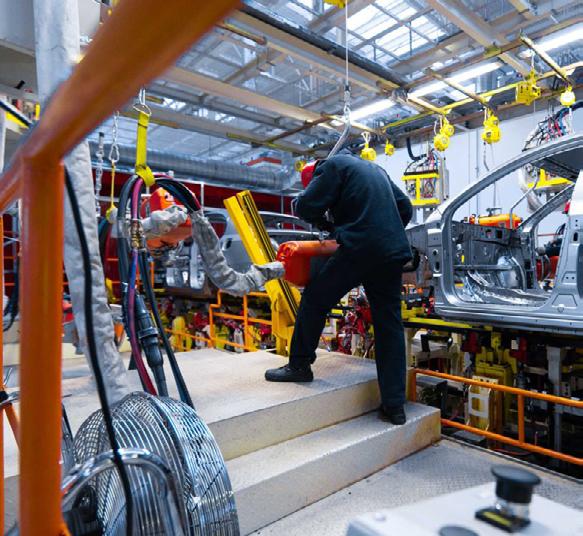

Despite concerns over potential U.S. tariffs, the auto parts sector continues to drive Foreign Direct Investment (FDI) into Nuevo León, as it remains exempt from these measures if it complies with USMCA regional content requirements. However, this advantage has led to caution among companies—many, especially American firms, choose not to publicly announce their investments to avoid drawing attention that could result in trade penalties. According to Emmanuel Loo, Deputy Secretary of Investment and Innovation in Nuevo León, several new companies are already building facilities and hiring staff, but are intentionally staying out of the spotlight due to tariff-related fears.
SOURCE: EL ECONOMISTA


The Puerta Logística del Bajío, a 52-hectare development in Guanajuato, has been officially designated as a Federal Development Hub under Mexico’s national Plan México strategy to enhance economic infrastructure amid growing nearshoring trends. Strategically located in central Mexico, the hub will connect with Celaya’s rail bypass and partner with Ferromex and CPKC México to ensure strong multimodal connectivity. It will include customs facilities, C-TPAT certification, and value-added logistics services, serving key sectors like automotive, advanced manufacturing, IT, aerospace, and agroindustry. With integrated planning that includes housing and talent development, the project aims to boost regional competitiveness, attract both national and international investment, and position Guanajuato as a central logistics and export platform in Mexico.
SOURCE: MEXICO INDUSTRY

The government of San Luis Potosí will rehabilitate key roads in the state’s industrial zone, including axes 132 and 122, with support from the State Roads Board (JEC) and the Ministry of Urban Development and Public Works (Seduvop). In a strategic meeting with the Industrial Zone Users Union (UUZI) and the Automotive Cluster of San Luis Potosí, the Ministry of Economic Development (Sedeco) outlined urgent plans to improve road infrastructure to boost economic and logistical growth. A report will be prepared to define jurisdictional responsibilities (federal, state, or municipal), and a resurfacing plan is being proposed for the 2026 fiscal year to renew critical industrial roads in the region.
SOURCE: HERALDO DE SAN LUIS
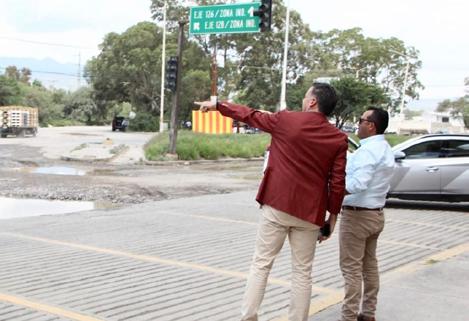


The Ministry of Economic Development (SEDECO) and the Swiss Embassy in Mexico held a meeting to promote Mexico City as a leading biopharmaceutical and biotechnology hub in North America. SEDECO head Manola Zabalza highlighted the global potential of the biotechnology sector, noting that Mexico could capture a $50 billion share. She emphasized the city’s rich talent pool and the importance of collaboration between government, academia, and industry to go beyond research and become active producers. Swiss Ambassador Pietro Piffaretti confirmed support from Swiss companies, citing Mexico’s legal and infrastructure advantages. Key industry players attended, showing strong interest in investment and innovation.
SOURCE: PM FARMA
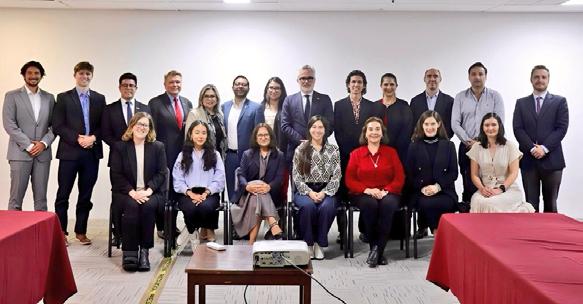

Grupo Bimbo’s $2 billion investment program will bring significant benefits to the State of Mexico (Edomex), one of the seven states selected for this large-scale initiative. As part of its 80th anniversary celebration, the company plans to modernize its production facilities and expand its logistics fleet, generating thousands of jobs and boosting local development. Edomex, a strategic industrial hub for Bimbo, will benefit from improved technology, innovation, and sustainability measures that align with the company’s commitment to reducing environmental impact and promoting a circular economy. According to the Ministry of Economy, the overall investment will generate 2,000 direct jobs and over 10,800 indirect jobs nationwide, with Edomex receiving a notable share due to its strong manufacturing base. CEO José Manuel González highlighted that 97% of the company’s inputs are sourced from within Mexico, ensuring that this investment strengthens domestic supply chains and benefits local farmers and suppliers in Edomex and beyond.
SOURCE: MAS NOTICIAS
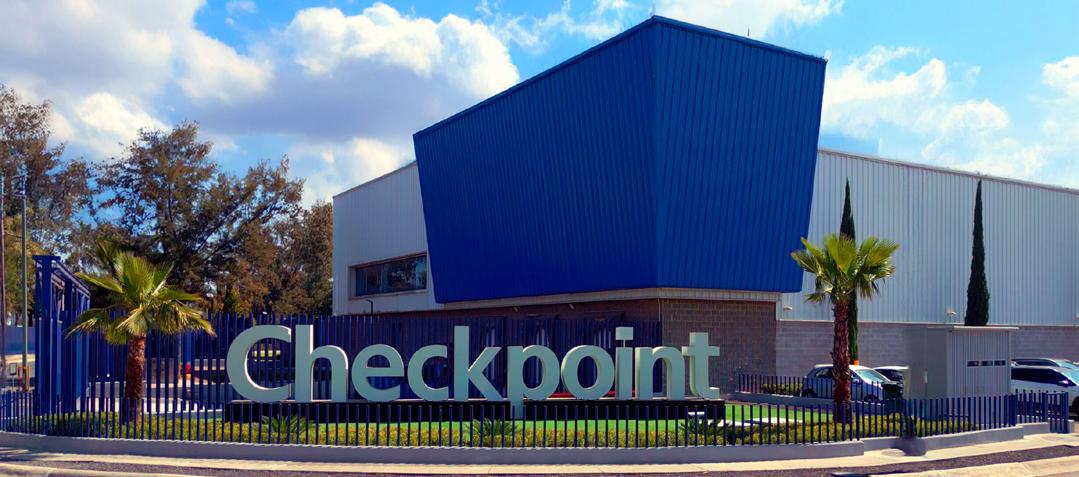
Checkpoint Systems, a global provider of RFID technology and solutions, announced the opening of a new manufacturing facility in Mexico City. The project represents a $40 million dollar investment and is expected to generate 100 jobs in the region.
As part of its expansion strategy into Latin markets, US based company Oatey, a manufacturer of plumbing products, inaugurated a new facility today in Apodaca, Nuevo León. The plant is expected to create 150 jobs and produce approximately 20 million cans per year.
Grupo Bimbo announced an investment of over $2 billion dolalrs to be deployed gradually through 2028, with a direct impact across seven states in Mexico. This decision reflects the company’s confidence in the national economic environment and aligns with its sustainable growth strategy.
The investment includes strengthening infrastructure and operational capabilities. As a result, more than 2,000 direct jobs and 10,800 indirect jobs will be created, and the company’s electric vehicle fleet will be modernized.
SOURCES: MEXICO INDUSTRY, PLAYERS OF LIFE
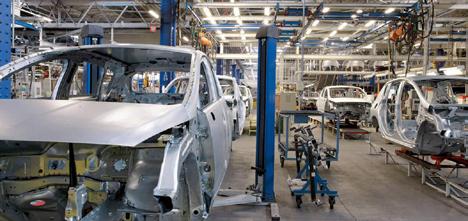
DRIVING OPPORTUNITY: NEARSHORING IN THE AUTOMOTIVE SECTOR
Mexico’s automotive industry is accelerating, and nearshoring is fueling the momentum. This blog unpacks the trends driving reinvestment in the region—including U.S. tariffs, USMCA compliance, and the shift toward EV and smart vehicle production. Discover how OEMs and Tier 1 suppliers are future-proofing operations with strategic moves to Mexico.
KEY TAKEAWAYS:
• Mexico ranks 4th globally in auto exports and is #1 to the U.S.
• Tariffs and EV incentives are reshaping sourcing and logistics decisions
• Local supplier development is critical for long-term competitiveness
• Monterrey, Saltillo, and Bajío remain top investment destinations
• Read the full blog post to explore what’s driving OEM strategy across North America.
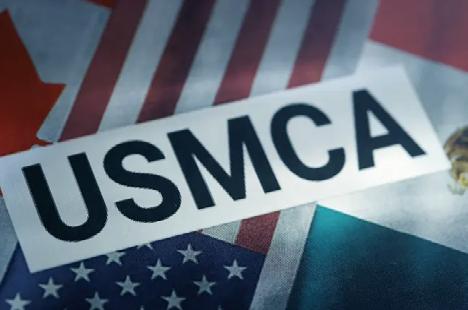
UNDERSTANDING RULES OF ORIGIN: PROVING TRADE AGREEMENT ELIGIBILITY
Navigating trade agreements like the USMCA starts with one essential step: understanding Rules of Origin. This blog breaks down how manufacturers can prove product eligibility and avoid costly compliance errors when certifying origin.
KEY TAKEAWAYS:
• Rules of Origin determine if a product qualifies for tariff-free treatment
• Certification can be done by the importer, exporter, or producer
• Keeping accurate documentation is critical in case of audits
• Compliance errors can lead to penalties and retroactive duties
• Read the full article to ensure your supply chain meets trade agreement requirements.
VISIT OUR WEBSITE TO EXPLORE OUR FEATURED BLOG POSTS, EBOOKS, AND CASE STUDIES PRODENSA.COM/INSIGHTS